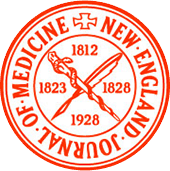We all know the classic adages of avoiding fats or lowering calories and the like, but much like other fields of science, nutritional science evolves with our understand of physiology and of the foods themselves.
But, despite advances in research and changes in the modern healthcare landscape (for example, diabetes today is rampant compared to what it was even a decade ago)…old belief systems die hard!
And even “modern” nutritional advice is often riddled with outdated ideas and special interest influences about what “healthy” vs. “what’s not”.
Today, we’ll have some fun debunking the myths around five formerly-known-as,“must-avoid” foods, and looking at the research behind their newfound “healthy” status.
#1 Food We Thought was Unhealthy That Isn’t: Coffee
America’s breakfast best friend, coffee, has grown out of Ethiopian bushes and into our hearts as one of the most consumed food products around the world.
We love our coffee—to the point of spending copious amounts of money on the perfect barista-crafted cup.
But most traditional nutrition advice and research—on both the conventional and “alternative” sides—hasn’t always promoted coffee as a “healthy” beverage…
…until recently.
Around the turn of the 21st century, new information began coming to light which suggested that steaming cup of joe may be good for your health.
For example: according to one study done by the National Institute of Health (NIA) coffee may help protect against type 2 diabetes [note]https://www.medicalnewstoday.com/articles/270202.php[/note], [note]https://www.ncbi.nlm.nih.gov/pmc/articles/PMC3012180/[/note].
The reason is largely due to coffee’s affects on a sex hormone-binding globulin (SHBG) protein that affects development of type 2 diabetes.
Drinking coffee increases the levels of plasma found in the protein, which helps control the development of the disease.
Another study by Dr. Murad of Erasmus MC University Medical Center in Rotterdam in the Netherlands suggested that coffee could help prevent the fatty liver tissue that ultimately can lead to cirrhosis, a serious liver disease.
Heart health often comes up when talking about the associated problems with caffeine intake. Previously, we assumed that coffee leads to an increase in heart disease conditions; however, newer research is pointing us in the opposite direction.
The key here is moderation, as in most topics of this nature.
Researchers at the Beth Israel Deaconess Medical Center (BIDMC) and the Harvard School of Public Health in Boston suggest that drinking four “European” cups a day–a “European” cup is defined as a four ounce serving (not a grande cafe mocha!)–potentially decreases the risk of heart failure.
In fact, their numbers pointed to participants in the study having a 11% lower risk of heart failure [note]https://www.hsph.harvard.edu/news/hsph-in-the-news/coffee-appears-to-protect-against-heart-failure-skin-cancer-2/[/note].
So, it appears seem coffee can be healthful than we thought.
#2 Food We Thought Was Unhealthy, But Isn’t: Chocolate
Got a craving for this modern mayan delicacy but worried about the effects it will have on the body?
Unless you have a sensitivity to chocolate which causes unwanted symptoms (which a Knew Health Coach could help you figure out) you may need not worry no more!
New research shows that some chocolate consumption may actually lead to more benefits than detriment.
However, not all chocolate is created equal, so next time you reach for that bar in the store, make sure you’re grabbing the right one.
We recommend at least a 75% cocoa for the best benefit to taste ratio.
Let’s take a look at how satisfying this craving can help you.
- Dark chocolate contains higher percentages of cocoa, which has helpful antioxidants known to help fight sundry diseases and degradation in the body.
- Among the other wonderful components in cocoa, biologically active phenolic compounds are also present [note]https://www.ncbi.nlm.nih.gov/pubmed/23462053[/note], which are important in a wide variety of health concerns. While phenolic compounds in general are what give fruits and vegetables their taste (and also the browning effect of old food), they also are important in inhibiting carcinogens [note]https://pubs.acs.org/doi/pdf/10.1021/bk-1992-0506.ch001[/note]. They have also been linked to lowering oxidative stress, blood pressure, and atherosclerosis.
- One study even pointed to a link between chocolate and improved cognitive function especially in older people [note]http://n.neurology.org/content/early/2013/08/07/WNL.0b013e3182a351aa[/note].
Next time you go to reach for your favorite candy bar, look around first and see if there is some dark chocolate without all the added fats and processed ingredient, and maybe your brain will thank you!
Note: if you’re experiencing any type of health issue, especially insomnia, skin breakouts or digestive complaints, take care about chocolate consumption.
If you do eat it, observe how it makes you feel; keeping in min some people do have sensitivities to even “healthy” foods.
#3 Food We Thought Was Unhealthy, But Isn’t: Red Meat
Of the five foods featured in this article, none is more debated than red meat.
The rhetoric on one side says that red meat leads to obesity, heart disease and even cancer.
Conversely, red meat advocates argue that meat is rich in key nutrients and not all red meat is equal when it comes to nutritional value vs. health risks.
So who’s right?
Some research has started surfacing to shed light on the real benefits of consuming some quality red meat.
- Iron, an indispensable asset to the physiological engine, is abundant in red meat. We need different amounts of it person to person, but the evidence is clear that red meat provides not only the amount of iron we need but also a form (“heme” iron)that is more easily absorbed than plant-based foods which contain non-heme iron.
- Lean red meat has a natural abundance of B vitamins. Among these is vitamin B-12, which is crucial in promoting a health nervous system and brain activity, and a nutrient many people are lacking in. Furthermore, red meat contains a number of other vitamins that actually aid in digestion [note]https://www.livestrong.com/article/407839-the-health-benefits-of-eating-red-meat/[/note].
- Protein! Research suggests that a 3-oz. serving of red meat (not a 12 oz steak) accounts for half of your daily intake of protein. Additionally, the amino acids in red meats are efficient as helping rebuild muscle tissues and fortifying the enzymes that block illnesses.
Plus, there is mounting evidence to suggest that red meat from grass-fed animals is lower in fat than meat from animals raised on grain, and a healthy source of omega-3 fatty acids [note]https://www.ncbi.nlm.nih.gov/pubmed/24018274[/note].
Our medical director, Dr. Jeff Gladd, is a big fan of grass-fed meats for this reason.
The point here is to choice the right quality and cuts of meat that works with your body type.
Women and men need different amounts of iron, some people digest red meat easier than others and each blood type needs an even more specific amount.
Moreover, each cut of meat is a little different and may also contain varying levels of saturated fats.
You want to pick one that has low saturated fats and has either been processed minimally or not at all. This part is of the utmost importance.
Ground beef that is a medley of parts from various cows, pales in comparison to grass-fed sirloin, nutritionally speaking.
And, while most of us have been conditioned to think that more is better, in this case, a small portion of lean grass-fed red meat is significantly better than reaching for another massive burger.
Talk to your Knew Health Coach or medical provider about how much red meat is right for you.
#4 Food We Thought was Unhealthy, But Isn’t: Carbs
Even the word “carbs” can trigger a fear-reaction in some people. Especially those who have ever struggled with losing weight or sugar addiction.
But, as we’ve discussed before, not all carbs are created equal—not by a long shot.
You see, the “bad” carbohydrates we are used to hearing about are almost exclusively highly processed carbohydrates––think refined sweeteners and white flour products. We call these fast carbs.
These types of carbs are processed very quickly in the body, and lead to an over-production of insulin in the pancreas (If you missed our Facebook live “Office Hours” on this subject head over to our page https://www.facebook.com/KNEWhealth/videos/189707305052045/ to hear our Director of Coaches, Tracy Harrison, MS describe this in detail), which can lead to lack of energy, feelings of anxiousness or irritability and even pre-diabetes if allowed to go on for too long.
The carbs that interest us in terms of nutrition, sustained energy and health benefits are slow carbohydrates which are intact, replete with nutrients, and feature fiber that slows their absorption. These include:
- Sweet potatoes
- Squashes
- Quinoa
- Black Beans
- Whole fruits
Just like with the other foods listed here, some people will do better with certain amounts and types of carbs and grains than others.
If you have an autoimmune condition, diabetes or other blood sugar issues, for example, your carb intake and choices may need to be more limited.
Your Knew Health Coach or doctor can help guide you in this regard.
#5 Food We Thought was Unhealthy, But Isn’t: Fats
The stigma surrounding fats is one of unending conversation.
There are unsaturated fats, saturated ones, good ones, bad ones and all of them lead to a little more around the middle, right?
Wrong!
Fats are essential in maintaining the energy we use throughout the day as well keeping certain conditions at bay.
That said, there are some specific fats you want to eat and some you definitely want to avoid.
Specifically, monounsaturated and polyunsaturated fats help reduce LDL cholesterol as well as decreasing the risk of type 2 diabetes.
These types of fats are actually anti-inflammatory as well.
Here are some foods where you can find naturally occuring mono-and polyunsaturated fat content:
- This one almost goes without saying, avocados
- Nuts and seeds
- Olives
- Ground flaxseed
- Salmon
- Olive Oil
- Coconut Oil
- Grass-fed butter
And of course, you want to avoid any “hydrogenated” and “partially hydrogenated” oils.
Hydrogenated oils have an extra hydrogen atom synthetically stuffed into the compound and do not break down in the body the same way, if at all.
These are the must-avoid fats.
Additionally, those with inflammatory issues will want to steer clear of seed oils which are naturally rich in pro-inflammatory omega-6 fatty acids, such as:
- Canola oil
- Cottonseed oil
- Corn oil
- Soy oil
- Safflower oil
- Sunflower oil
- Peanut oil
- Rapeseed oil
- Grapeseed oil
It’s always amazing how nutrition advice morphs and changes over years and decades based on new and old research, belief systems and special interest funding.
Our hope with this post was to bust up some old-school food myths and hopefully help re-awaken some of your inner knowing about what food agrees with your unique body.
Because, once you start learning (or re-learning) how different foods impact different people in different ways, and start becoming more aware of how you feel after you eat these foods (or any foods) you’ll become your own nutritional expert…
…and that’s the point isn’t it? To become the creator of your own health.
Enjoy!
-The (foodies of the) Knew Health Team
Sources
https://www.health.harvard.edu/blog/the-latest-scoop-on-the-health-benefits-of-coffee-2017092512429
https://www.medicalnewstoday.com/articles/317827.php
https://www.medicalnewstoday.com/articles/213665.php
https://www.medicalnewstoday.com/articles/247109.php
https://www.ncbi.nlm.nih.gov/pubmed/23462053
https://pubs.acs.org/doi/pdf/10.1021/bk-1992-0506.ch001
http://n.neurology.org/content/early/2013/08/07/WNL.0b013e3182a351aa
https://www.livestrong.com/article/407839-the-health-benefits-of-eating-red-meat/
https://www.healthline.com/nutrition/grass-fed-vs-grain-fed-beef#section2











































